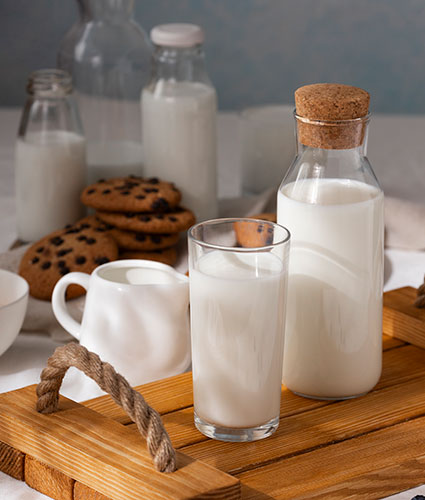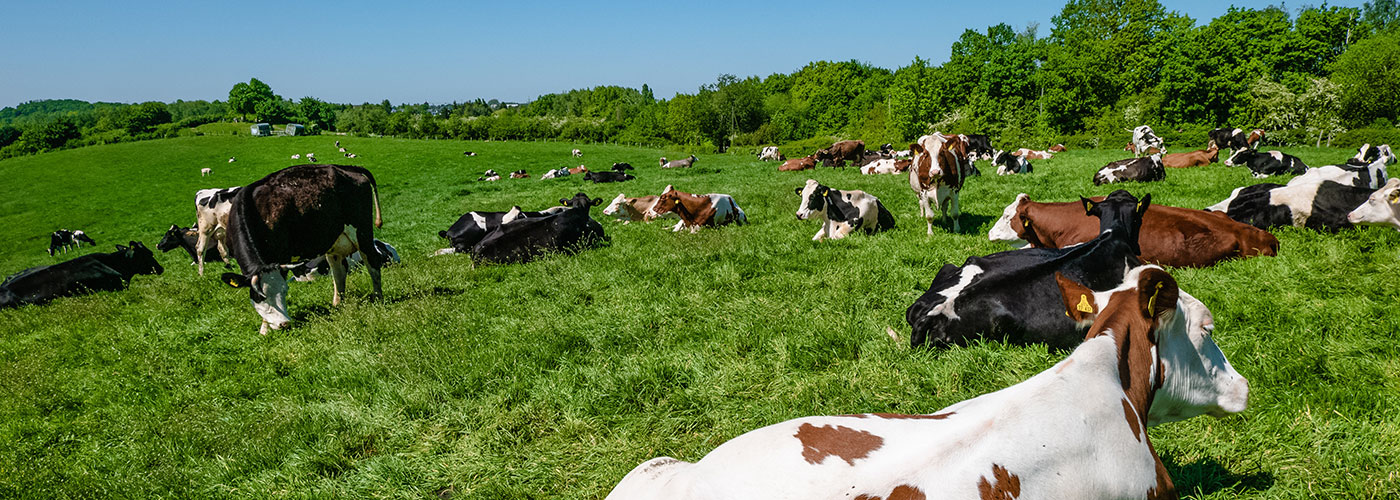
Dairy products are characterised by being very sensitive to sudden changes in temperature, which is why the cold chain is particularly important to guarantee their optimal preservation.
With our milk collection, traceability and transport service, we guarantee our customers a precise tracking of the transported raw material. This ensures that each farmer receives a check on the specific quality of the milk.
We check this quality by analysing the fat and protein, in this case, of the milk. These parameters are collected with the company's laboratory equipment, where we take an exact and precise sample from each farm, so that the fat and protein that is being transported is then analysed in an approved external laboratory.
The company respects the traceability of the food chain at all times, following the Hazard Analysis and Critical Control Points (HACCP) system, to guarantee the safety, hygiene and temperature of the milk and other raw materials.
Dairy products are characterised by being very sensitive to sudden changes in temperature, which is why the cold chain is particularly important to guarantee their optimal preservation.
Regulation 853/2004 of the European Parliament and of the Council establishes the way in which dairy products must be stored, transported and refrigerated until they are ready for consumption.
The cold chain ensures that dairy products remain fresh and preserve their organoleptic properties. Dairy products are particularly delicate, if the indicated temperatures are not respected, their condition may be altered and cause damage to the consumer.
When preserving dairy products, we must differentiate between raw milk and pasteurised milk:
For dairy products, the ideal method of preservation is at low temperatures by refrigeration. At this point, avoiding any break in the cold chain is key to guaranteeing the optimal state of the product.
While in refrigeration products are kept between 0Cº and 8Cº, in freezing they are kept between -18Cº and -35Cº. Refrigeration is used instead of freezing because this process can alter the fat and protein content.
Breaking the cold chain in dairy products creates an environment conducive to the growth of micro-organisms. These microorganisms deteriorate the quality of the milk and can cause digestive problems when consumed.
For this reason, the right technology must be in place to monitor the actual temperature of dairy products at each link in the supply chain at all times .
Critical points in the cold chain are those where there is the greatest risk of the cold chain being broken. Every moment between transport, storage and sale is crucial.
Particular attention should be paid to the initial loading and delivery moments, as when changing dairy products in storage there is a higher risk of not maintaining the temperature. On the other hand, throughout the transport process it must be checked that there are no leaks in the insulation that could affect the temperature.
At Rios Sangiao we understand that any failure in the cold chain of dairy products can severely affect the product. As distributors of well-known brands of dairy products, our work is focused on avoiding any variation in the temperature of these products during the whole process from arrival to delivery. In addition, we clean our tanks in approved and certified washing facilities in order to avoid any cross-contamination problems.
Since our foundation in 1994, in Oroso (A Coruña), we have had clear values and objectives. We are committed to complying with the highest specific quality standards, as well as following the required regulations and legislation. For this reason, we hold certifications such as ISO 9001, which determines the requirements of a correct Quality Management System, with international recognition. In addition, we also have GMP certification, which ensures hygiene in the food chain based on a series of previously established requirements.
Likewise, and within our main objectives, we ensure the delivery of raw materials to all the places where our customers arrive. For this reason, we not only cover the entire national territory, but we also reach the United Kingdom and countries within the European Union such as Germany, Belgium, France, Italy, the Netherlands and Portugal.
It is this efficiency and commitment to quality in our deliveries that have earned us the trust of important customers in the dairy sector and the food industry.
If you are interested in finding out more about our milk collection, storage and transport service for the sector or other food liquids, please do not hesitate to contact us to answer any questions you may have.




This has been the work of Sr. Concejo

